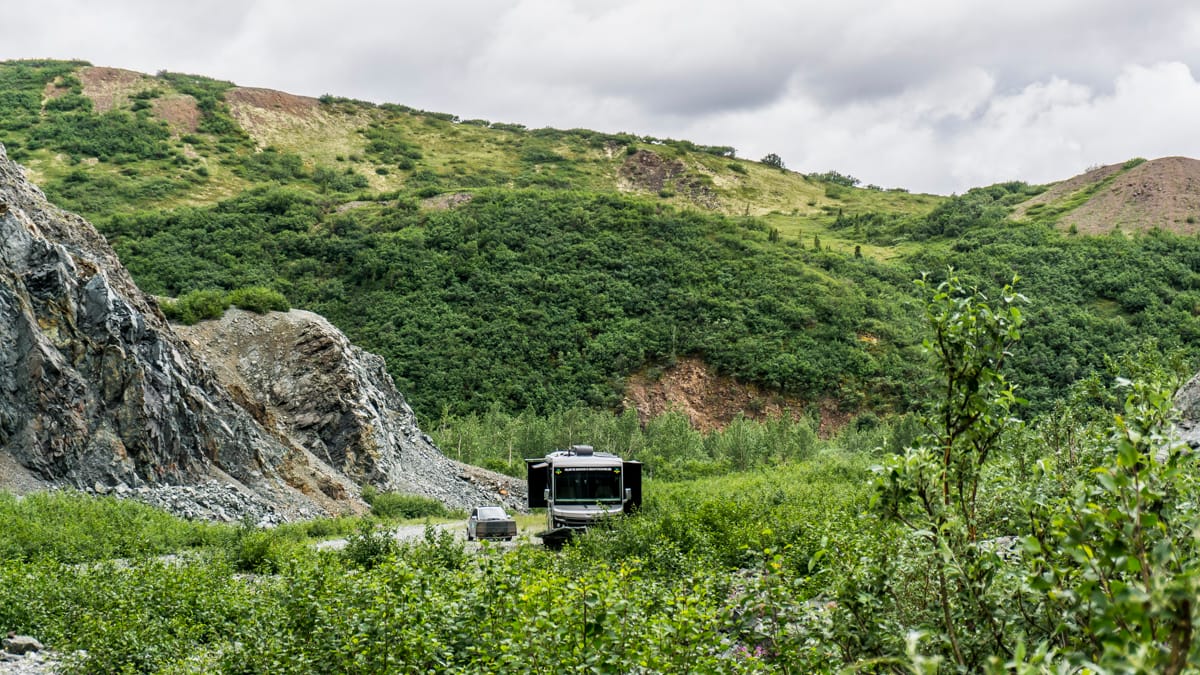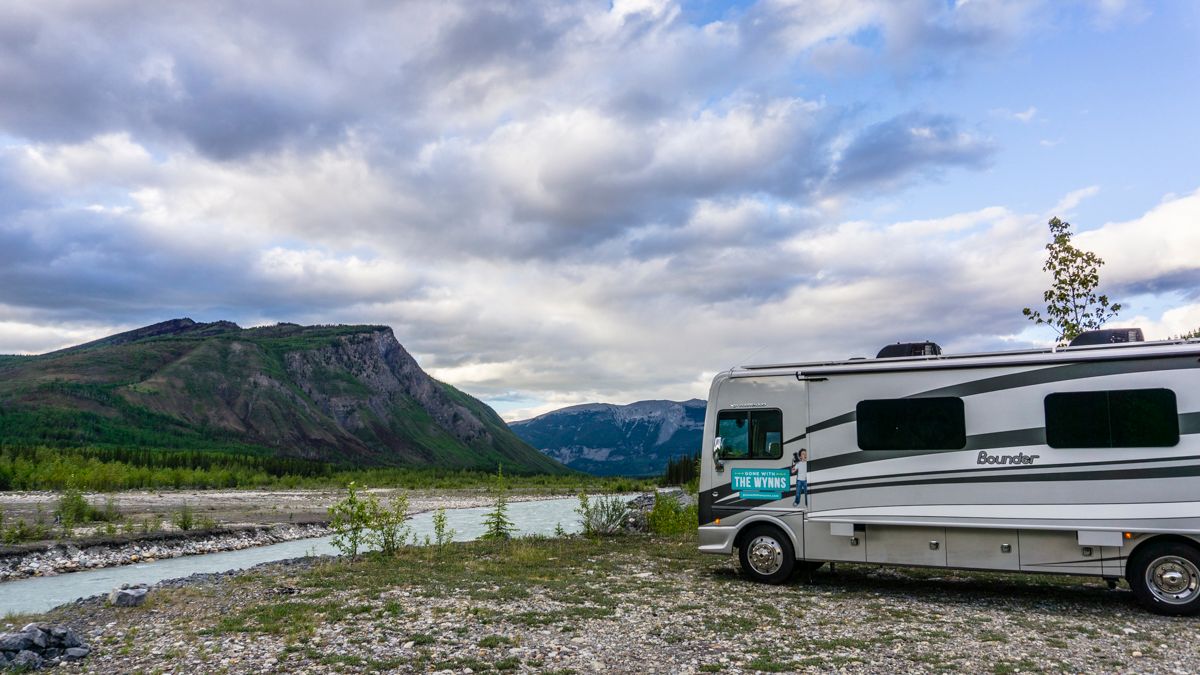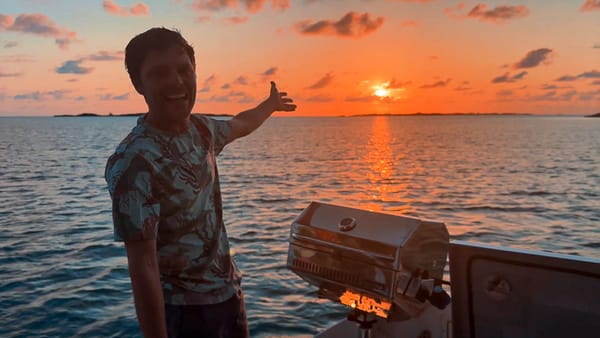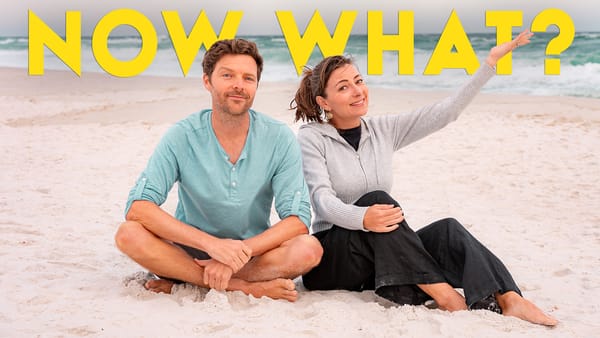Boondocking Tips – the How to and Where to

Boondocking, Off the grid, Off the cord, Dispersed Camping, Dry Camping or Wild Camping are all names for camping or RV’ing without any hook ups (water, electric or sewer). Boondocking is probably the most popular term in the RV community, Dispersed Camping is what the government agencies (BLM, National Forest, etc.) call it, but our personal favorite is Wild Camping, not just because it sounds cool but because it embodies what it’s all about…driving out into the wild and camping.
This is the ultimate way to shrink your footprint, disconnect and truly surround yourself with nature (and save a lot of money while doing it). For us Wild Camping is our hands down favorite way to live and the ultimate reason to own an RV. Don’t believe us? Watch this video we made a couple of years ago when we really started getting into boondocking, then we’ll dive into all our tips and tricks to get you out in the wild!
Now, I already know what you’re thinking: Is it legal? safe? or sanitary? How do you find boondocking sites? How can it be free? Where do you get water?
Whoaaaa Nelly…You’re brain is on question overload! Look, we totally get it, we had the same questions before we started wild camping with our motorhome. In the next several paragraphs I’m going to try and answer all of your questions and give you some pearls (as my grandmother would say).
Is it safe?
Yes, if it wasn’t, they wouldn’t allow it. Most crime happens in a city, not in the wilderness. Here’s the way we see it: The chance of a creeper driving all the way out to the middle of nowhere looking for unsuspecting campers that rarely show up isn’t too likely (much less anyone even knowing exactly where you are out in the wild). They have way bigger fish to fry in the cities where there are stores and houses loaded with valuables. Don’t let fear of the unknown talk you out of something before you have even given it a try. Oh, and don’t watch the news…that stuff is riddled with fear mongering stories.
I even go Wild Camping on my own: Nikki Goes Solo – RV Road Trip For One
In all our years of travel we’ve never had an issue, and we don’t personally know anyone that has. We’ve never felt unsafe and we hope to keep it that way. In the event of anything crazy happening we have a few go to’s for protection:
- Our house has wheels. If we have a sketchy feeling about a place, we leave.
- Carry a good, solid, heavy flashlight like this one we have. Blind anything headed your way with the strobe mode and then use it as a weapon if needed in self defense. I have a pretty solid hit and recently had the chance to practice my death blow in Alaska.
- A Loud Fog Horn is great to keep on hand for deafening any unexpected visitors. Blast them with the Strobe Light then hit them with the horn and get the heck out!
- Bear spray is great to keep on hand for any animal encounters or unruly humans, but you gotta practice to use it correctly in a hostile situation.
- Keeping your keys and phone next to the bed is always helpful in an emergency situation, activate your car alarm as a distraction (and potentially alert nearby campers) and call the police.
- If you are super concerned I’d highly recommend you take a self defense class. Confidence, feeling safe and knowing you can handle yourself in an unexpected situation is important.
How do you find it and is it legal?
Yes, its legal, as long as you stay in designated dispersed camping areas, believe it or not its even encouraged! We’ve explained it all in the article How to Find Free Camping (but don’t get sidetracked, you can come back and click the link once you’re done here). It’s typically all about Free public lands like National Forests, Bureau of Land Management (BLM) and several other government run free or low cost camping resources. We love the Public Lands app as its a quick and easy to use resource for seeing if there are public lands near you. Plus, campground locator websites like Campendium and UltimateCampgrounds are adding more free locations every day. You can also use freecampsites.net, allstays, and other campground locators but they are sometimes inaccurate and can be frustrating to use in those instances. Typically, the best resource is directly contacting the public lands office. Then of course there are bloggers (like ourselves) that share locations and GPS coordinates to some of our faves. Use our map to see if we have shared on in the area you are visiting.
Is it sanitary?
Of course it is! Do I seem like the kinda girl who would ever go unwashed, or gasp, stinky? I wouldn’t go in a jungle without lip gloss much less go around smelling like anything short of roses. When properly prepared, Wild Camping can be just as luxurious as any vacation.
Electricity
We have a lot of Boondocking Gadgets because our RV is not just our home, it’s our mobile office and work studio (yes we work from the road)! Power is a must. This is where solar power can really make a huge difference. We have a great solar set up and as long as we have sun, we live like kings! Now, maybe you are not ready to go all in and invest in a full solar set up yet, but a portable solar panel is a super affordable way to start. Obviously if you have a generator on board you’ll be fine too…but who wants to be camping in the middle of the wilderness with that annoying hum/buzz/stink of the gene, or have to worry about the hot noxious fumes igniting the dry grass you’re parked next to?
Typically we don’t wild camp if the low is below 35 degrees (Fahrenheit), or the high temperature is much above 90 degrees (unless we’re surrounded by trees that keep it cooler inside). We don’t want to worry about running a heater (propane or electric) or an air conditioner when we’re living off the cord. With a decent amount of solar and a hefty battery bank you can easily run a fan or small space heater to help keep things more comfortable, you just have to do it in moderation.
Also check out our post: Keeping Cool In Extreme Heat – Ideas From Burning Man
LED Lighting
A lot of new coaches come with LED’s now but not all of them yet. Switching our lights from traditional bulbs to LED’s in Windy the RV was a huge help in saving power. With the efficiency of LED’s, we could (in theory) leave our lights on day and night and never run down our batteries. When we had all 40 traditional halogen lights on in Windy we would pull 26 AMPs and when we switched to all LED’s we only pulled 2-3 AMPs (and they don’t create heat like traditional bulbs which is extremely beneficial in warm weather).
M4 LED is run by a guy named Steve who understands the needs of RV’ers and has answered a ton of our questions about LED light upgrades. He is great at helping you choose the right color, wattage and bulb for your application. Plus, if you use the coupon code wynns5 you get an extra 5% off.
Don’t forget to light up the outside too! When you’re way out in nature there isn’t much ambient light at night, unless there’s a full moon, so it gets EXTREMELY dark. We like to use solar powered Christmas lights around the coach that come on automatically when it gets dark, also we saw this cool motion activated LED light that can be set on the ground and it helps to scare away critters and can alert you to any approaching people.
Water
Water conservation is very important while Wild Camping but it doesn’t mean you can’t shower or live “normally”. With a few very affordable adjustments you can cut your water consumption in half without sacrifice!
- Showering – Switch to a low flow shower head like an Oxygenics and install a shut off valve so you can turn off the water while lathering up. Combined these two simple and inexpensive changes will save a ton of water without losing water pressure, in fact we can take a “regular” shower and only use a couple of gallons of water. An unexpected benefit is we never run out of hot water, even with our little 6 gallon propane/electric hot water tank.
- Faucets – Most hardware stores sell faucet aerators but it’s almost impossible to find the best ones so we ordered these 1.0 GPM faucet aerators for only a few bucks online. Switching over to low flow aerators (1.5gpm or less) will have you feeling a lot less guilty about washing your hands and your dishes. In our opinion paper plates are a waste and no fun, we’d much rather use dishes so this easy switch reduced our water consumption by over 50%.
- Solar Shower – We use a solar shower for doing dishes and any general clean ups outside. It’s easy to tote into town for refills and the water stays nice and hot without using any electricity. Also it’s super handy for beach camping when you need to rinse your feet before heading into the RV.
Drinking Water
We have an H20 Labs water distiller that allows us to take water from any source and turn it into clean, safe and yummy tasting drinking water but it does require a lot of power. So, as long as there is a water source of some sort (lake, pond, stream, etc.) having safe drinking water is never an issue. However, with our newer RV’s larger fresh water tank and our energy efficient Firewall water purifier we are finding that we don’t use our distiller as much anymore. For on the go and hiking we love our rechargeable Camelback All Clear that can turn most any clear freshwater source (lake or stream) into safe drinking water 1 glass (0.75L) at a time. We have had the same one for over two years now and it’s still alive and working like new. A lot of RVers swear by the Berkey Water Filters and we’ve actually used them a few times but we feel they’re bulky and take a long time to filter for our unplanned style of travel.
**If you are not quite ready for a new water set up, try these water saving tips. Wash your body using a wash cloth and a solar shower. For the super conservative, get a container and save some of the soapy water from bathing or washing dishes to flush your toilet instead of using your fresh water. Invest in a couple of collapsible five-gallon water containers that you can refill on trips into town. You can also get water at many service stations by just asking, but you’ll want to make sure you filter the water as you won’t know the quality of the source.
Gray Water
Gray water can fill up before you know it. As long as you are using bio-degradable/all natural bath and cleaning products, you can use a watering can to sprinkle grey water around your campsite to help keep the dust down. Do this once a day and it will help keep your grey water levels in check. Never just open up your tank and dump at will leaving behind a giant puddle… that is illegal. If you’re planning to stay for an extended period of time check out the video below and this post – Eliminating Gray Water – Ideas From Burning Man
Black Water
We have a composting toilet that completely eliminated our black water and need for a black tank! Hands down one of our all time unexpected and favorite mods! Not sure what a composting toilet is or how it works? We have a whole video series on it! Also, check out our post on what a composting toilet is and why you need one. Until the day you decide to switch to a composting toilet… sanidumps is an app and website that lists dump stations around the USA and Canada, because in NO way, shape or form is it OK to dump blackwater anywhere other than a dump station.
Trash
The simplest way to avoid trash is to eat fresh foods. Fruits and vegetables don’t usually come in packaging that has to be thrown away. We always stock up our refrigerator before we head out into the wilderness. If you are Wild Camping for an extended amount of time, keep your full trash bags in a closed basement bin and not just outside waiting for critters to invade. Then as you head into town, it’s usually easy to find dumpsters at a grocery store or parking lot to dispose a small bag or two. As for your recyclables, I love the app irecycle (more of our fave apps here), it lists all of the recycling locations near you, what’s accepted and hours of operation.
Wild Camping Locations
I think that’s about it! If you have never tried Wild Camping before? If not what are you waiting for? It’s our favorite way to live and usually has the best scenery! To get you inspired and started here are a couple of videos:
Then of course then there is Harvest Hosts which is an entirely different kind of Camping!





